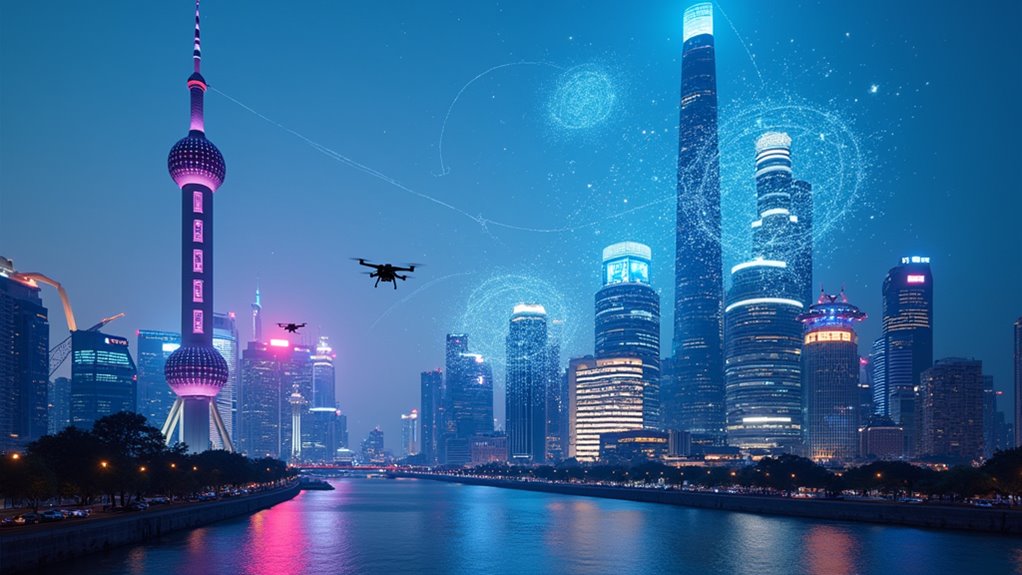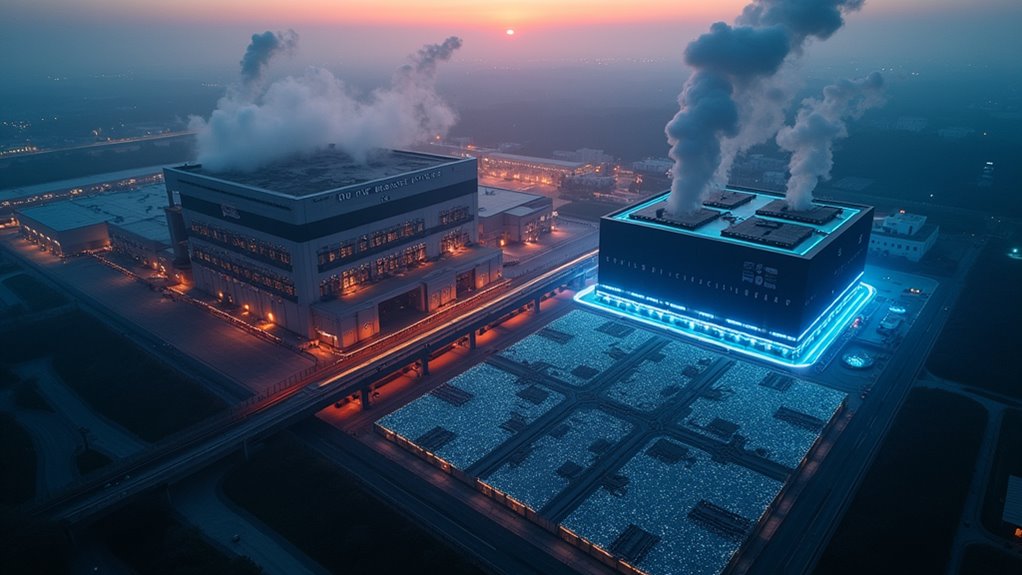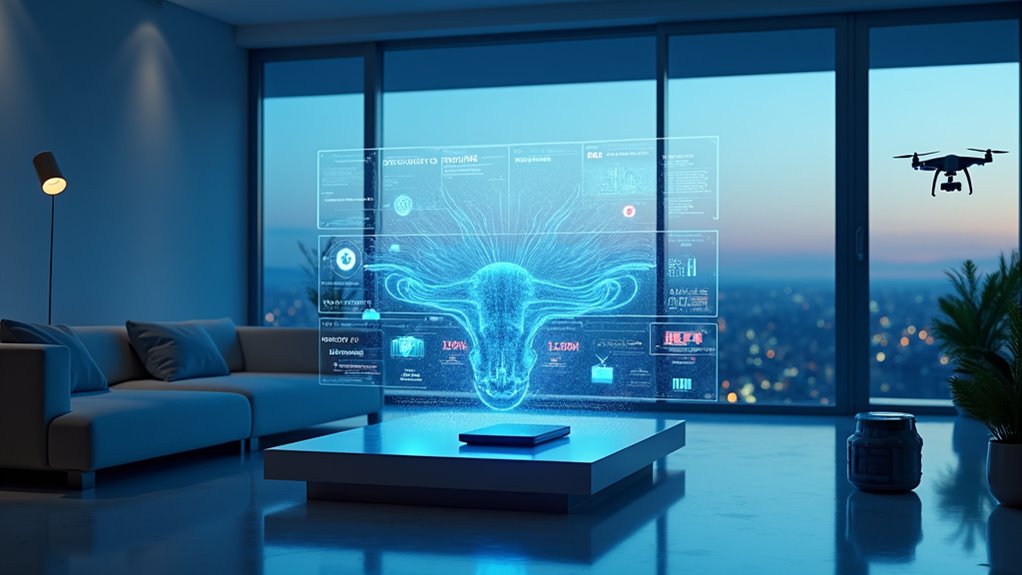While Silicon Valley obsesses over ChatGPT, China is quietly orchestrating its own AI revolution. With a crystal-clear target of becoming the world’s leading AI powerhouse by 2030, China isn’t just dreaming big – it’s backing those dreams with serious cash and an army of tech innovators.
The numbers are staggering. A projected AI industry worth $202.57 billion by 2026. That’s not small change. Chinese tech giants like Alibaba, Tencent, and Baidu are churning out impressive AI models that are giving Western competitors a run for their money. Shanghai alone has over 1,000 enterprises focused on core AI development. DeepSeek, for instance, is showing that sometimes it’s not about throwing more hardware at the problem – it’s about being smarter with what you’ve got. DeepSeek’s groundbreaking achievements have triggered a stock market decline affecting major U.S. tech companies.
Made in China 2025 isn’t just another boring government initiative. It’s China’s not-so-subtle way of saying “thanks, but no thanks” to foreign tech dependence. And they’re putting their money where their mouth is. State funding is flowing like water into AI research, startups, and moonshot projects. Talk about commitment.
China’s tech independence push isn’t subtle – they’re flooding AI development with state cash, making their ambitions crystal clear.
The US-China tech rivalry? It’s getting spicy. While America flexes its hardware muscles, China’s focusing on software optimization. Different approaches, same goal: AI dominance. Chinese companies are achieving similar results at a fraction of the cost, with their AI systems showing remarkable efficiency in medical diagnostics and drug discovery. Even Apple’s cozying up to Alibaba now. Times are changing.
Chinese tech companies aren’t playing around. Alibaba’s streamlining logistics with AI. Tencent’s open-sourcing their Hunyuan-Large model. Baidu’s cooking up a new version of Ernie. ByteDance and Kuaishou are jumping into the AI pool too. Everyone wants a piece of the action.
This isn’t just about bragging rights. It’s about reshaping the global tech landscape. China’s hosting international AI conferences, building partnerships, and disrupting markets. They’re not asking for a seat at the table anymore – they’re building their own table.
And by 2030? Well, that’s when we’ll see if this bold bet pays off.








